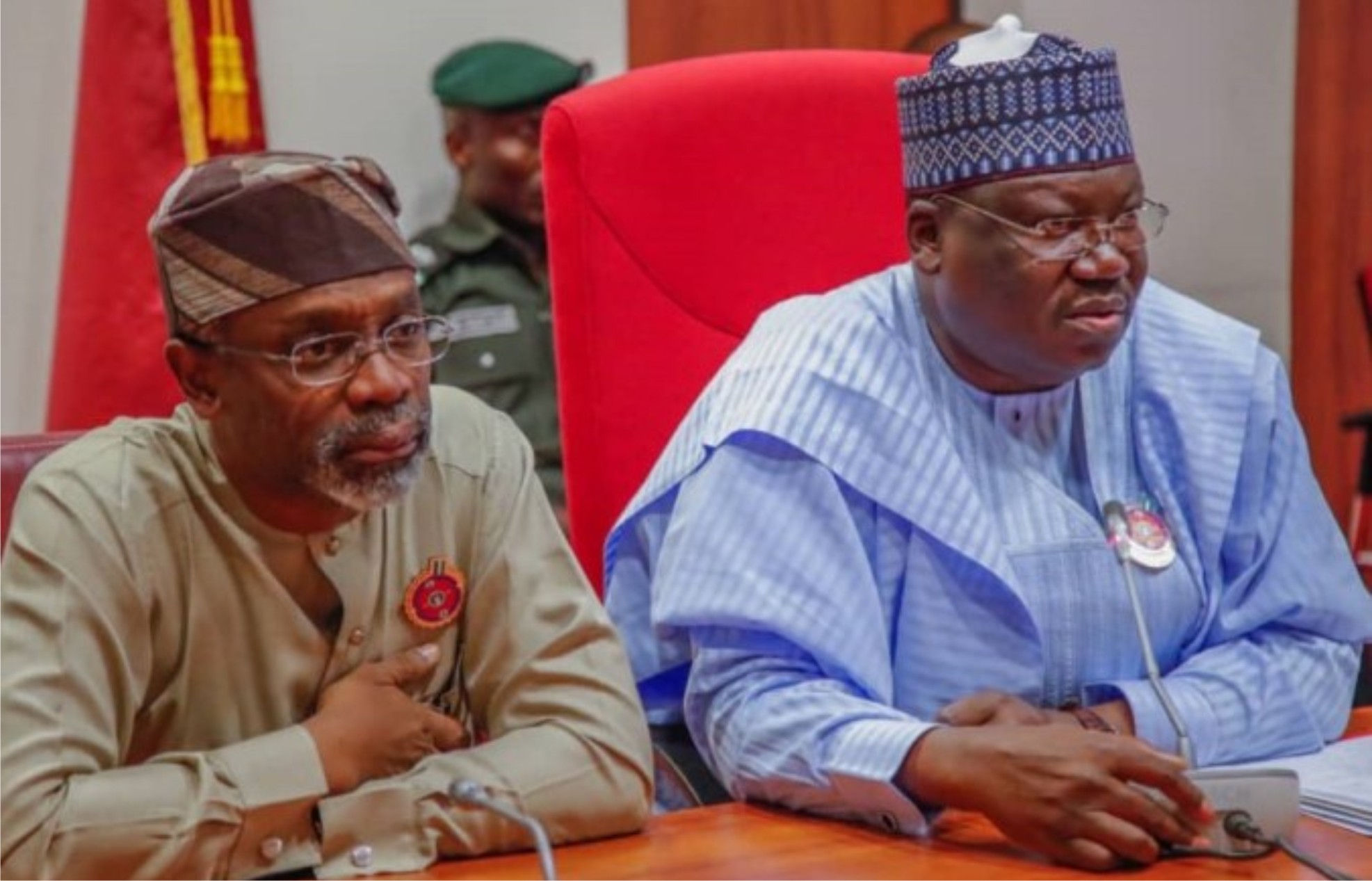Business
Senate President Advocates Creation Of More Jobs

The Senate President, Ahmad Lawan, has advocated the consolidation of the gains of 2020 budget, especially on creation of more jobs opportunities in the country.
Lawan made the call in his opening remarks at the presentation of the 2021 budget estimates to the Joint Session of the National Assembly by President Muhammadu Buhari, yesterday.
According to him, “It is our hope that the 2021 budget will be targeted at consolidation of gains made by the 2020 budget.
“The 2020 budget was targeted at sustaining growth and jobs.”
He said the implementation of the 2020 budget has shown a remarkable improvement over the previous years.
“Certainly, the injection of funds for the various programmes and projects had helped our economy.
“We expect that before the end of this fiscal year, the 2020 budget would have been implemented 100 per cent, this will be a historic feat.
“We need to not only protect jobs, but create more,” Lawan said.
He said the eventual passage of the Appropriation Bill 2020 and signing into law in record time was a clear testimony of the benefits of the legislature and the executive working together for the good of the people.
Lawan, however, said the outbreak of the COVID-19 pandemic disrupted the nation’s plans, as it shut down economies, and affected the income and expenditure projections.
This, according to him, necessitated a review of the entire budget, which the National Assembly did with profound sense of purpose, duty and patriotism.
“We were convinced that the steps we took went a long way in stabilising our economy, and in ensuring that funds were provided for critical programmes.
“As we are about to begin another fiscal plan, we shall be influenced by the desire to consolidate on our gains, coming from the hard lessons of the pandemic, and on the urgency of sustaining our diversification programmes,” he said.
Lawan assured that the National Assembly was ready to pass the 2021 budget before the end of the year, but added that the Assembly would be thorough in its scrutiny of the budget.
This, he said, would boost planning and enhance productivity and efficiency in the management and application of resources.
“Certainly, the injection of funds for the various programmes and projects had helped our economy.
“The National Assembly approved the Nigerian Economic Sustainability Plan (NESP), a plan of the Federal Government, to address the economic challenges of today.
Business
FIRS Clarifies New Tax Laws, Debunks Levy Misconceptions

Business
CBN Revises Cash Withdrawal Rules January 2026, Ends Special Authorisation

The Central Bank of Nigeria (CBN) has revised its cash withdrawal rules, discontinuing the special authorisation previously permitting individuals to withdraw N5 million and corporates N10 million once monthly, with effect from January 2026.
In a circular released Tuesday, December 2, 2025, and signed by the Director, Financial Policy & Regulation Department, FIRS, Dr. Rita I. Sike, the apex bank explained that previous cash policies had been introduced over the years in response to evolving circumstances.
However, with time, the need has arisen to streamline these provisions to reflect present-day realities.
“These policies, issued over the years in response to evolving circumstances in cash management, sought to reduce cash usage and encourage accelerated adoption of other payment options, particularly electronic payment channels.
“Effective January 1, 2026, individuals will be allowed to withdraw up to N500,000 weekly across all channels, while corporate entities will be limited to N5 million”, it said.
According to the statement, withdrawals above these thresholds would attract excess withdrawal fees of three percent for individuals and five percent for corporates, with the charges shared between the CBN and the financial institutions.
Deposit Money Banks are required to submit monthly reports on cash withdrawals above the specified limits, as well as on cash deposits, to the relevant supervisory departments.
They must also create separate accounts to warehouse processing charges collected on excess withdrawals.
Exemptions and superseding provisions
Revenue-generating accounts of federal, state, and local governments, along with accounts of microfinance banks and primary mortgage banks with commercial and non-interest banks, are exempted from the new withdrawal limits and excess withdrawal fees.
However, exemptions previously granted to embassies, diplomatic missions, and aid-donor agencies have been withdrawn.
The CBN clarified that the circular is without prejudice to the provisions of certain earlier directives but supersedes others, as detailed in its appendices.
Business
Shippers Council Vows Commitment To Security At Nigerian Ports
-
Business1 day ago
Shippers Council Vows Commitment To Security At Nigerian Ports
-

 Business1 day ago
Business1 day agoNigeria Risks Talents Exodus In Oil And Gas Sector – PENGASSAN
-

 Business1 day ago
Business1 day agoCBN Revises Cash Withdrawal Rules January 2026, Ends Special Authorisation
-
Business2 days ago
NCDMB, Others Task Youths On Skills Acquisition, Peace
-

 Business1 day ago
Business1 day agoFIRS Clarifies New Tax Laws, Debunks Levy Misconceptions
-

 News1 day ago
News1 day agoTinubu Swears In Christopher Musa As Defence Minister
-

 online games2 days ago
online games2 days agoHow Pocket Option Works: A Complete Beginner’s Guide
-

 Women2 days ago
Women2 days agoRIVERS NAWOJ AND PHACCIMA PARTNER TO STRENGTHEN MUTUAL GOALS

